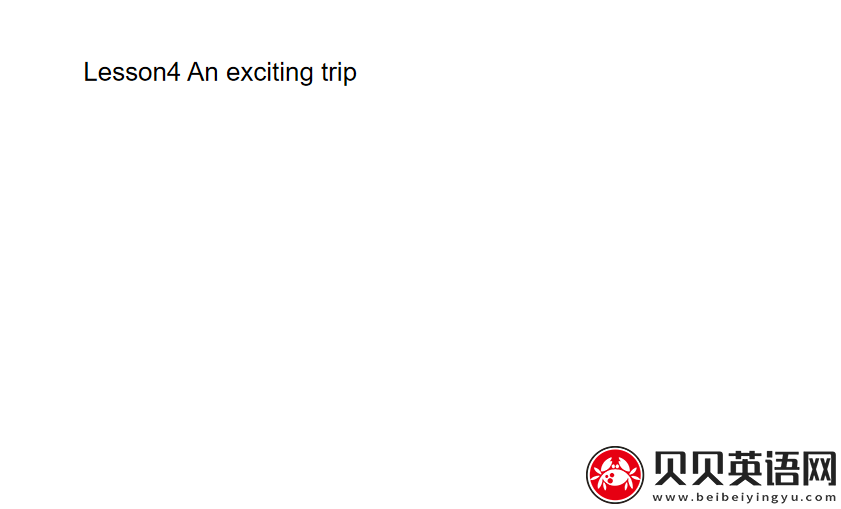欢迎访问贝贝英语网!

一、延续性动词 延续性动词表示的动作不但可以延续,而且可以产生持久的影响。常见的这类动词有:be,have,keep,know,learn,lie,live,read,sing,sleep,stand,stay,wait,walk,watch等。
二、终止性动词 又称为瞬间动词或非延续性动词,它表示的动作不能延续,也就是说动作一旦发生就立即结束,并产生某种结果。常见的这类动词有:accept,arrive,become,begin,borrow,break,buy,catch,close,come,die,end,fall,finish,get,give,go,join,leave,put,reach,receive,shut,start,stop等。
Where did the writer spend his holidays last summer?
What did he do during the holiday?
Did he have a good time?
Why didn’t he enjoy his holidays?
What did he do on the last day of his holidays?
How many cards did the writer send?
双宾语由直接宾语和间接宾语组成。直接宾语是谓语动词的承受者(做什么),间接宾语表示谓语动作的方向(对谁做)或动作的目标(为谁做),一般情况下,间接宾语紧接在谓语动词后,但它不能单独存在。它和直接宾语组成双宾语
Please show me your passport.请把护照给我看一下。(your passport是直接宾语,me是间接宾语)
I’ll fetch you a chair.我给你拿一只椅子。(a chair是直接宾语,you是间接宾语)